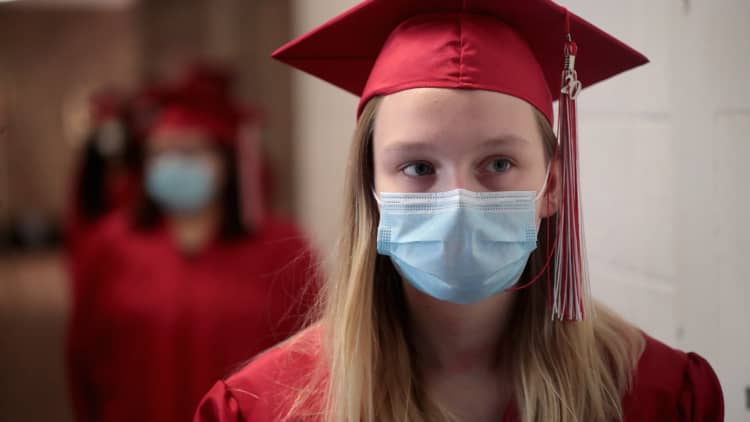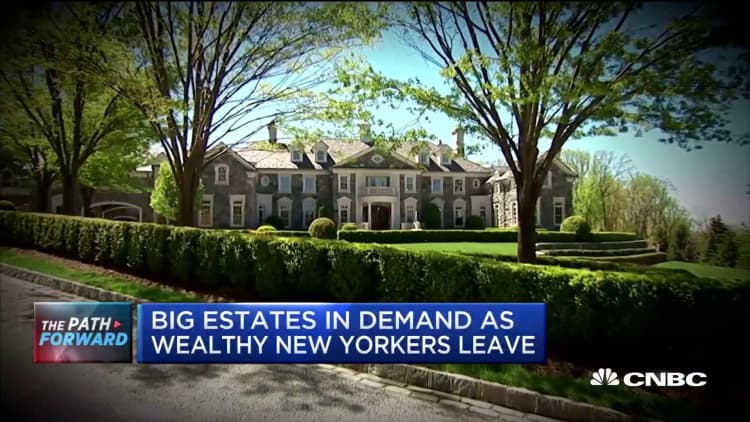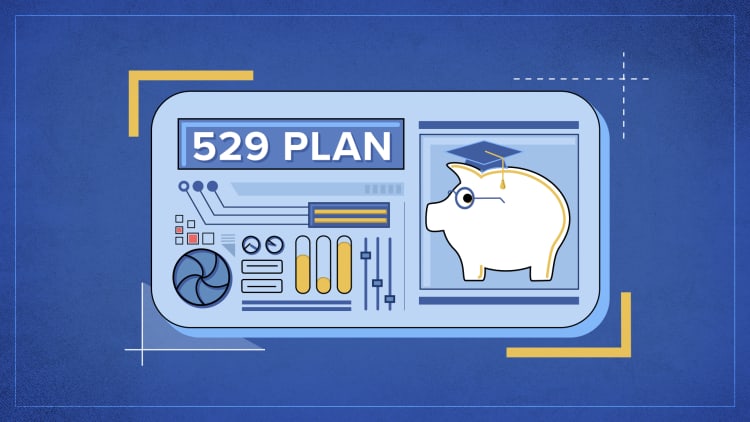
When the coronavirus crisis hit New York, many of the city's wealthiest families went elsewhere.
Without knowing what the fall will look like, some are debating if they will return to New York at all, which could open up an unprecedented number of spots at even the most elite institutions, according to Emily Glickman, president of Abacus Guide Educational Consulting.
"In my 21 years of practice, I have never seen anything like this in terms of extreme levels of churn and uncertainty," she said.
More from Personal Finance:
Students still don't know what to expect this fall
College-bound students to miss out on billions in financial aid
As college classes move online, don't expect a tuition discount
Up until now, competition has been notoriously fierce at Manhattan's top schools, with families going to extreme measures to jockey for an edge in admissions.
But as they hunker down indefinitely in affluent enclaves such as Greenwich, Connecticut; Westchester County north of New York City; and the Hamptons area of Long Island, some city parents are seeking out suburban schools instead.
Life outside the city promises a lower risk of infection and often a substantially lower cost. Not only are suburban private schools less expensive but, for those who own a second home, enrolling in public school for a year — or longer — is an increasingly attractive option.

Overall, the average cost of tuition at private schools across all grades is $26,866 a year, with roughly a quarter of all families receiving financial aid, according to the National Association of Independent Schools.
In New York City, annual tuition is $50,000, on average, and, as long as students are learning remotely, parents are saying it's just not worth the cost.
As of the 2019-2020 academic year, roughly 20% of the city's 1.24 million schoolchildren attended private schools, compared with about 10% of the students in the rest of the state, according to data from the city Department of Education.
"There could be people that may defer to next year," said Maria Castelluccio, head of school at Léman Manhattan Preparatory School.
We are looking at a 10% to 25% decrease ... at this point.Maria Castellucciohead of school at Léman Manhattan Preparatory School
"We are working hard to get everyone's commitment," she said. However, amid Covid-19, even if parents have the financial capability, they are saying there are other deterrents to returning to school in New York, such as taking public transportation, she said.
"We are looking at a 10% to 25% decrease [in enrollment] at this point," Castelluccio said.

"The most competitive schools have a strong hand," Glickman said. "It's much harder for families to give up their spot at Dalton, Trinity or Horace Mann."
Akin to what is happening at the college level, top-tier elementary and high schools may lose some students but gain replacements as new families step into those spots, she said.
It's the less-competitive schools that are finding it harder to replace the students that are leaving, Glickman added.
Demand for need-based aid rises
At the same time, many families are concerned about how they will afford a private-school education as record unemployment takes a toll.
However, if a growing number of wealthier parents seek financial assistance, there could be less aid available for lower-income students who need it the most.
"For us, it's a concern," said Francisco Tezén, president and CEO of A Better Chance, a nonprofit that helps minority middle-school and high-school aged children get access to private school. "As we go through uncertain economic times, there will be less financial resources for new families in subsequent years."
"Our focal point is to ensure that students who otherwise might not have access to these opportunities still have a pathway."


